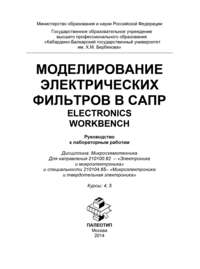
Полная версия
75 лучших рассказов / 75 Best Short Stories
‘Whatever shall we do?’ asked Elizabeth Hockin next morning of her husband. “Us can’t go on like this wi’ the dead woman about our house nightly. There’s no tellin’ she might take it into her head to come upstairs and pull the sheets off us. As we took hers, she may think it fair to carry off ours.”
‘I think,’ said Jabez sorrowfully, ‘we’ll have to return ’em.’
‘But how?’
After some consultation the couple resolved on conveying all the deceased woman’s goods to the churchyard, by night, and placing them on her grave.
‘I reckon,’ said Hockin, ‘we’ll bide in the porch and watch what happens. If they be left there till mornin’, why we may carry ’em back wi’ an easy conscience. We’ve spent some pounds over her buryin’.’
‘What have it come to?’
‘Three pounds five and fourpence, as I make it out.’
‘Well,’ said Elizabeth, ‘we must risk it.’
When night had fallen murk, the farmer and his wife crept from their house, carrying the linen sheets, the teapot, and the silver spoons. They did not start till late, for fear of encountering any villagers on the way, and not till after the maid, Sally, had gone to bed.
They fastened the farm door behind them. The night was dark and stormy, with scudding clouds, so dense as to make deep night, when they did not part and allow the moon to peer forth.
They walked timorously, and side by side, looking about them as they proceeded, and on reaching the churchyard gate they halted to pluck up courage before opening and venturing within. Jabez had furnished himself with a bottle of gin, to give courage to himself and his wife.
Together they heaped the articles that had belonged to Aunt Joanna upon the fresh grave, but as they did so the wind caught the linen and unfurled and flapped it, and they were forced to place stones upon it to hold it down. Then, quaking with fear, they retreated to the church porch, and Jabez, uncorking the bottle, first took a long pull himself, and then presented it to his wife.
And now down came a tearing rain, driven by a blast from the Atlantic, howling among the gravestones, and screaming in the battlements of the tower and its bell-chamber windows. The night was so dark, and the rain fell so heavily, that they could see nothing for full half an hour. But then the clouds were rent asunder, and the moon glared white and ghastly over the churchyard.
Elizabeth caught her husband by the arm and pointed. There was, however, no need for her to indicate that on which his eyes were fixed already.
Both saw a lean hand come up out of the grave, and lay hold of one of the fine linen sheets and drag at it. They saw it drag the sheet by one corner, and then it went down underground, and the sheet followed, as though sucked down in a vortex; fold on fold it descended, till the entire sheet had disappeared.
‘Her have taken it for her windin’ sheet,’ whispered Elizabeth. ‘Whativer will her do wi’ the rest?’
‘Have a drop o’ gin; this be terrible tryin’,’ said Jabez in an undertone; and again the couple put their lips to the bottle, which came away considerably lighter after the draughts.
‘Look!’ gasped Elizabeth.
Again the lean hand with long fingers appeared above the soil, and this was seen groping about the grass till it laid hold of the teapot. Then it groped again, and gathered up the spoons, that flashed in the moonbeams. Next, up came the second hand, and a long arm that stretched along the grave till it reached the other sheets. At once, on being raised, these sheets were caught by the wind, and flapped and fluttered like half-hoisted sails. The hands retained them for a while till they bellied with the wind, and then let them go, and they were swept away by the blast across the churchyard, over the wall, and lodged in the carpenter’s yard that adjoined, among his timber.
‘She have sent ’em to the Hexts,’ whispered Elizabeth. Next the hands began to trifle with the teapot, and to shake out some of the coins.
In a minute some silver pieces were flung with so true an aim that they fell clinking down on the floor of the porch.
How many coins, how much money was cast, the couple were in no mood to estimate. Then they saw the hands collect the pillow-cases, and proceed to roll up the teapot and silver spoons in them, and, that done, the white bundle was cast into the air, and caught by the wind and carried over the churchyard wall into the wheelwright’s yard.
At once a curtain of vapour rushed across the face of the moon, and again the graveyard was buried in darkness. Half an hour elapsed before the moon shone out again. Then the Hockins saw that nothing was stirring in the cemetery.
‘I reckon us may go now,’ said Jabez.
‘Let us gather up what she chucked to us,’ advised Elizabeth. So the couple felt about the floor, and collected a number of coins. What they were they could not tell till they reached their home, and had lighted a candle.
‘How much be it?’ asked Elizabeth.
‘Three pound five and fourpence, exact,’ answered Jabez.
The Inconsiderate Waiter (James Matthew Barrie)
Frequently I have to ask myself in the street for the name of the man I bowed to just now, and then, before I can answer, the wind of the first corner blows him from my memory. I have a theory, however, that those puzzling faces, which pass before I can see who cut the coat, all belong to club waiters.
Until William forced his affairs upon me that was all I did know of the private life of waiters, though I have been in the club for twenty years. I was even unaware whether they slept downstairs or had their own homes; nor had I the interest to inquire of other members, nor they the knowledge to inform me. I hold that this sort of people should be fed and clothed and given airing and wives and children, and I subscribe yearly, I believe for these purposes; but to come into closer relation with waiters is bad form; they are club fittings, and William should have kept his distress to himself, or taken it away and patched it up like a rent in one of the chairs. His inconsiderateness has been a pair of spectacles to me for months.
It is not correct taste to know the name of a club waiter, so I must apologise for knowing William’s, and still more for not forgetting it. If, again, to speak of a waiter is bad form, to speak bitterly is the comic degree of it. But William has disappointed me sorely. There were years when I would defer dining several minutes that he might wait on me. His pains to reserve the window-seat for me were perfectly satisfactory. I allowed him privileges, as to suggest dishes, and would give him information, as that someone had startled me in the reading-room by slamming a door. I have shown him how I cut my finger with a piece of string. Obviously he was gratified by these attentions, usually recommending a liqueur; and I fancy he must have understood my sufferings, for he often looked ill himself. Probably he was rheumatic, but I cannot say for certain, as I never thought of asking, and he had the sense to see that the knowledge would be offensive to me.
In the smoking-room we have a waiter so independent that once, when he brought me a yellow chartreuse[46], and I said I had ordered green, he replied, ‘No, sir; you said yellow.’ William could never have been guilty of such effrontery. In appearance, of course, he is mean, but I can no more describe him than a milkmaid could draw cows. I suppose we distinguish one waiter from another much as we pick our hat from the rack. We could have plotted a murder safely before William. He never presumed to have any opinions of his own. When such was my mood he remained silent, and if I announced that something diverting had happened to me he laughed before I told him what it was. He turned the twinkle in his eye off or on at my bidding as readily as if it was the gas. To my ‘Sure to be wet to-morrow,’ he would reply, ‘Yes, sir;’ and to Trelawney’s ‘It doesn’t look like rain,’ two minutes afterward, he would reply, ‘No, sir.’ It was one member who said Lightning Rod would win the Derby[47] and another who said Lightning Rod had no chance, but it was William who agreed with both. He was like a cheroot[48], which may be smoked from either end. So used was I to him that, had he died or got another situation (or whatever it is such persons do when they disappear from the club), I should probably have told the head waiter to bring him back, as I disliked changes.
It would not become me to know precisely when I began to think William an ingrate, but I date his lapse from the evening when he brought me oysters. I detest oysters, and no one knew it better than William. He has agreed with me that he could not understand any gentleman’s liking them. Between me and a certain member who smacks his lips twelve times to a dozen of them William knew I liked a screen to be placed until we had reached the soup, and yet he gave me the oysters and the other man my sardine. Both the other member and I quickly called for brandy and the head waiter. To do William justice, he shook, but never can I forget his audacious explanation: ‘Beg pardon, sir, but I was thinking of something else.’
In these words William had flung off the mask, and now I knew him for what he was.
I must not be accused of bad form for looking at William on the following evening. What prompted me to do so was not personal interest in him, but a desire to see whether I dare let him wait on me again. So, recalling that a caster was off a chair yesterday, one is entitled to make sure that it is on to-day before sitting down. If the expression is not too strong, I may say that I was taken aback by William’s manner. Even when crossing the room to take my orders he let his one hand play nervously with the other. I had to repeat ‘Sardine on toast’ twice, and instead of answering ‘Yes, sir,’ as if my selection of sardine on toast was a personal gratification to him, which is the manner one expects of a waiter, he glanced at the clock, then out at the window, and, starting, asked, ‘Did you say sardine on toast, sir?’
It was the height of summer, when London smells like a chemist’s shop, and he who has the dinner-table at the window needs no candles to show him his knife and fork. I lay back at intervals, now watching a starved-looking woman sleep on a door-step, and again complaining of the club bananas. By-and-by I saw a girl of the commonest kind, ill-clad and dirty, as all these Arabs are. Their parents should be compelled to feed and clothe them comfortably, or at least to keep them indoors, where they cannot offend our eyes. Such children are for pushing aside with one’s umbrella; but this girl I noticed because she was gazing at the club windows. She had stood thus for perhaps ten minutes when I became aware that someone was leaning over me to look out at the window. I turned round. Conceive my indignation on seeing that the rude person was William.
‘How dare you, William?’ I said, sternly. He seemed not to hear me. Let me tell, in the measured words of one describing a past incident, what then took place. To get nearer the window he pressed heavily on my shoulder.
‘William, you forget yourself!’ I said, meaning – as I see now – that he had forgotten me.
I heard him gulp, but not to my reprimand. He was scanning the street. His hands chattered on my shoulder, and, pushing him from me, I saw that his mouth was agape.
‘What are you looking for?’ I asked.
He stared at me, and then, like one who had at last heard the echo of my question, seemed to be brought back to the club. He turned his face from me for an instant, and answered shakily:
‘I beg your pardon, sir! I–I shouldn’t have done it. Are the bananas too ripe, sir?’
He recommended the nuts, and awaited my verdict so anxiously while I ate one that I was about to speak graciously, when I again saw his eyes drag him to the window.
‘William,’ I said, my patience giving way at last, ‘I dislike being waited on by a melancholy waiter.’
‘Yes, sir,’ he replied, trying to smile, and then broke out passionately, ‘For God’s sake, sir, tell me, have you seen a little girl looking in at the club windows?’
He had been a good waiter once, and his distracted visage was spoiling my dinner.
‘There,’ I said, pointing to the girl, and no doubt would have added that he must bring me coffee immediately, had he continued to listen. But already he was beckoning to the child. I have not the least interest in her (indeed, it had never struck me that waiters had private affairs, and I still think it a pity that they should have); but as I happened to be looking out at the window I could not avoid seeing what occurred. As soon as the girl saw William she ran into the street, regardless of vehicles, and nodded three times to him. Then she disappeared.
I have said that she was quite a common child, without attraction of any sort, and yet it was amazing the difference she made in William. He gasped relief, like one who had broken through the anxiety that checks breathing, and into his face there came a silly laugh of happiness. I had dined well, on the whole, so I said:
‘I am glad to see you cheerful again, William.’
I meant that I approved his cheerfulness because it helped my digestion, but he must needs think I was sympathising with him.
‘Thank you, sir,’ he answered. ‘Oh, sir! when she nodded and I saw it was all right I could have gone down on my knees to God.’
I was as much horrified as if he had dropped a plate on my toes. Even William, disgracefully emotional as he was at the moment, flung out his arms to recall the shameful words.
‘Coffee, William!’ I said, sharply.
I sipped my coffee indignantly, for it was plain to me that William had something on his mind.
‘You are not vexed with me, sir?’ he had the hardihood to whisper.
‘It was a liberty,’ I said.
‘I know, sir; but I was beside myself.’
‘That was a liberty also.’
He hesitated, and then blurted out:
‘It is my wife, sir. She—’
I stopped him with my hand. William, whom I had favoured in so many ways, was a married man! I might have guessed as much years before had I ever reflected about waiters, for I knew vaguely that his class did this sort of thing. His confession was distasteful to me, and I said warningly:
‘Remember where you are, William.’
‘Yes, sir; but you see, she is so delicate—’
‘Delicate! I forbid your speaking to me on unpleasant topics.’
‘Yes, sir; begging your pardon.’
It was characteristic of William to beg my pardon and withdraw his wife, like some unsuccessful dish, as if its taste would not remain in the mouth. I shall be chided for questioning him further about his wife, but, though doubtless an unusual step, it was only bad form superficially, for my motive was irreproachable. I inquired for his wife, not because I was interested in her welfare, but in the hope of allaying my irritation. So I am entitled to invite the wayfarer who has bespattered me with mud to scrape it off.
I desired to be told by William that the girl’s signals meant his wife’s recovery to health. He should have seen that such was my wish and answered accordingly. But, with the brutal inconsiderateness of his class, he said:
‘She has had a good day; but the doctor, he – the doctor is afeard she is dying.’
Already I repented my questions. William and his wife seemed in league against me, when they might so easily have chosen some other member.
‘Pooh! the doctor,’ I said.
‘Yes, sir,’ he answered.
‘Have you been married long, William?’
‘Eight years, sir. Eight years ago she was – I–I mind her when… and now the doctor says—’
The fellow gaped at me. ‘More coffee, sir?’ he asked.
‘What is her ailment?’
‘She was always one of the delicate kind, but full of spirit, and – and you see, she has had a baby lately—’
‘William!’
‘And she – I – the doctor is afeard she’s not picking up.’
‘I feel sure she will pick up.’
‘Yes, sir?’
It must have been the wine I had drunk that made me tell him:
‘I was once married, William. My wife – it was just such a case as yours.’
‘She did not get better sir?’
‘No.’
After a pause he said, ‘Thank you, sir,’ meaning for the sympathy that made me tell him that. But it must have been the wine.
‘That little girl comes here with a message from your wife?’
‘Yes; if she nods three times it means my wife is a little better.’
‘She nodded thrice to-day.’
‘But she is told to do that to relieve me, and maybe those nods don’t tell the truth.’
‘Is she your girl?’
‘No; we have none but the baby. She is a neighbour’s; she comes twice a day.’
‘It is heartless of her parents not to send her every hour.’
‘But she is six years old,’ he said, ‘and has a house and two sisters to look after in the daytime, and a dinner to cook. Gentlefolk don’t understand.’
‘I suppose you live in some low part, William.’
‘Off Drury Lane,’ he answered, flushing; ‘but – but it isn’t low. You see, we were never used to anything better, and I mind when I let her see the house before we were married, she – she a sort of cried because she was so proud of it. That was eight years ago, and now – she’s afeard she’ll die when I’m away at my work.’
‘Did she tell you that?’
‘Never; she always says she is feeling a little stronger.’
‘Then how can you know she is afraid of that?’
‘I don’t know how I know, sir; but when I am leaving the house in the morning I look at her from the door, and she looks at me, and then I–I know.’
‘A green chartreuse, William!’
I tried to forget William’s vulgar story in billiards, but he had spoiled my game. My opponent, to whom I can give twenty, ran out when I was sixty-seven, and I put aside my cue pettishly. That in itself was bad form, but what would they have thought had they known that a waiter’s impertinence caused it! I grew angrier with William as the night wore on, and next day I punished him by giving my orders through another waiter.
As I had my window-seat, I could not but see that the girl was late again. Somehow I dawdled over my coffee. I had an evening paper before me, but there was so little in it that my eyes found more of interest in the street. It did not matter to me whether William’s wife died, but when that girl had promised to come, why did she not come? These lower classes only give their word to break it. The coffee was undrinkable.
At last I saw her. William was at another window, pretending to do something with the curtains. I stood up, pressing closer to the window. The coffee had been so bad that I felt shaky. She nodded three times, and smiled.
‘She is a little better,’ William whispered to me, almost gaily.
‘Whom are you speaking of?’ I asked, coldly, and immediately retired to the billiard-room, where I played a capital game. The coffee was much better there than in the dining-room.
Several days passed, and I took care to show William that I had forgotten his maunderings. I chanced to see the little girl (though I never looked for her) every evening, and she always nodded three times, save once, when she shook her head, and then William’s face grew white as a napkin. I remember this incident because that night I could not get into a pocket. So badly did I play that the thought of it kept me awake in bed, and that, again, made me wonder how William’s wife was. Next day I went to the club early (which was not my custom) to see the new books. Being in the club at any rate, I looked into the dining-room to ask William if I had left my gloves there, and the sight of him reminded me of his wife; so I asked for her. He shook his head mournfully, and I went off in a rage.
So accustomed am I to the club that when I dine elsewhere I feel uncomfortable next morning, as if I had missed a dinner. William knew this; yet here he was, hounding me out of the club! That evening I dined (as the saying is) at a restaurant, where no sauce was served with the asparagus. Furthermore, as if that were not triumph enough for William, his doleful face came between me and every dish, and I seemed to see his wife dying to annoy me.
I dined next day at the club for self-preservation, taking, however, a table in the middle of the room, and engaging a waiter who had once nearly poisoned me by not interfering when I put two lumps of sugar into my coffee instead of one, which is my allowance. But no William came to me to acknowledge his humiliation, and by-and-by I became aware that he was not in the room. Suddenly the thought struck me that his wife must be dead, and I – it was the worst cooked and the worst served dinner I ever had in the club.
I tried the smoking-room. Usually the talk there is entertaining, but on that occasion it was so frivolous that I did not remain five minutes. In the card-room a member told me excitedly that a policeman had spoken rudely to him; and my strange comment was:
‘After all, it is a small matter.’
In the library, where I had not been for years, I found two members asleep, and, to my surprise, William on a ladder dusting books.
‘You have not heard, sir?’ he said, in answer to my raised eyebrows. Descending the ladder, he whispered tragically: ‘It was last evening, sir. I–I lost my head, and I – swore at a member.’
I stepped back from William, and glanced apprehensively at the two members. They still slept.
‘I hardly knew,’ William went on, ‘what I was doing all day yesterday, for I had left my wife so weakly that—’
I stamped my foot.
‘I beg your pardon for speaking of her,’ he had the grace to say, ‘but I couldn’t help slipping up to the window often yesterday to look for Jenny, and when she did come, and I saw she was crying, it – it sort of confused me, and I didn’t know right, sir, what I was doing. I hit against a member, Mr. Myddleton Finch, and he – he jumped and swore at me. Well, sir, I had just touched him after all, and I was so miserable, it a kind of stung me to be treated like – like that, and me a man as well as him; and I lost my senses, and – and I swore back.’
William’s shamed head sank on his chest, but I even let pass his insolence in likening himself to a member of the club, so afraid was I of the sleepers waking and detecting me in talk with a waiter.
‘For the love of God,’ William cried, with coarse emotion, ‘don’t let them dismiss me!’
‘Speak lower!’ I said. ‘Who sent you here?’
‘I was turned out of the dining-room at once, and told to attend to the library until they had decided what to do with me. Oh, sir, I’ll lose my place!’
He was blubbering, as if a change of waiters was a matter of importance.
‘This is very bad, William,’ I said. ‘I fear I can do nothing for you.’
‘Have mercy on a distracted man!’ he entreated. ‘I’ll go on my knees to Mr. Myddleton Finch.’
How could I but despise a fellow who would be thus abject for a pound a week?
‘I dare not tell her,’ he continued, ‘that I have lost my place. She would just fall back and die.’
‘I forbade your speaking of your wife,’ I said, sharply, ‘unless you can speak pleasantly of her.’
‘But she may be worse now, sir, and I cannot even see Jenny from here. The library windows look to the back.’
‘If she dies,’ I said, ‘it will be a warning to you to marry a stronger woman next time.’
Now everyone knows that there is little real affection among the lower orders. As soon as they have lost one mate they take another. Yet William, forgetting our relative positions, drew himself up and raised his fist, and if I had not stepped back I swear he would have struck me.
The highly improper words William used I will omit, out of consideration for him. Even while he was apologising for them I retired to the smoking-room, where I found the cigarettes so badly rolled that they would not keep alight. After a little I remembered that I wanted to see Myddleton Finch about an improved saddle of which a friend of his has the patent. He was in the newsroom, and, having questioned him about the saddle, I said:
‘By the way, what is this story about your swearing at one of the waiters?’
‘You mean about his swearing at me,’ Myddleton Finch replied, reddening.
‘I am glad that was it,’ I said; ‘for I could not believe you guilty of such bad form.’
‘If I did swear—’ he was beginning, but I went on:
‘The version which has reached me was that you swore at him, and he repeated the word. I heard he was to be dismissed and you reprimanded.’
‘Who told you that?’ asked Myddleton Finch, who is a timid man.












